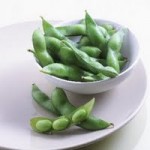Side effects of phytoestrogens
 Researchers from the Medical University Vienna, in Austria reviewed the published research.
Researchers from the Medical University Vienna, in Austria reviewed the published research.
Phytoestrogens are a group of weakly nonsteroidal compounds with estrogen effects that are found in plants.
First, the details.
- Data from 174 studies were used to perform a meta-analysis.
And, the results.
- The incidence of side effects in the phytoestrogen was 37% vs 38% in control groups.
- There were significantly higher rates of gastrointestinal side effects among phytoestrogen users.
- Musculoskeletal, neurological, and unspecific side effects were not significantly different between groups.
- Among women, the rates of hormone-related side effects such as endometrial hyperplasia, endometrial cancer, and breast cancer were not significantly different between groups.
The bottom line?
The authors concluded, “Phytoestrogen supplements have a safe side-effect profile with moderately elevated rates of gastrointestinal side effects.â€
“Rates of vaginal bleeding, endometrial hyperplasia (excessive cells in the endometrium), endometrial cancer, and breast cancer were not significantly increased among phytoestrogen users in the investigated studies.â€
Foods that contain phytoestrogens include soy beans, tofu, tempeh, soy beverages, linseed (flax), sesame seeds, wheat, berries, oats, barley, dried beans, lentils, rice, alfalfa, mung beans, apples, carrots, wheat germ, ricebran, and soy linseed bread.
10/8/09 20:27 JR